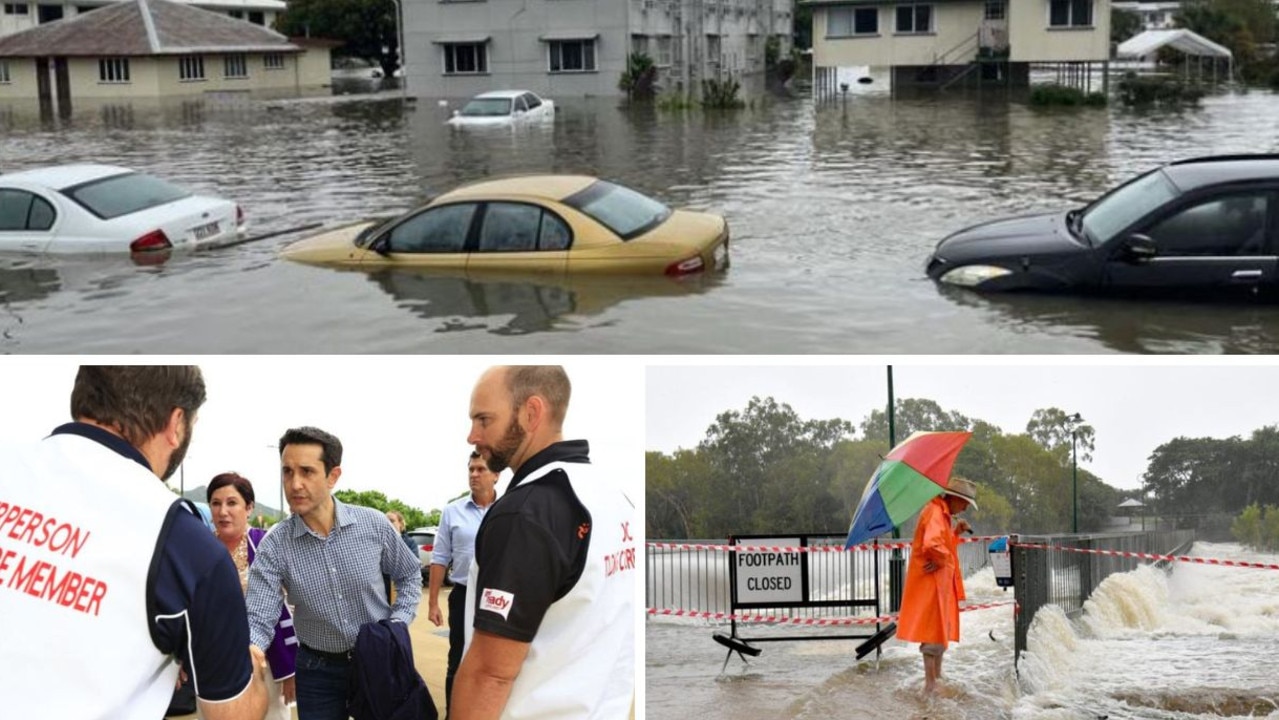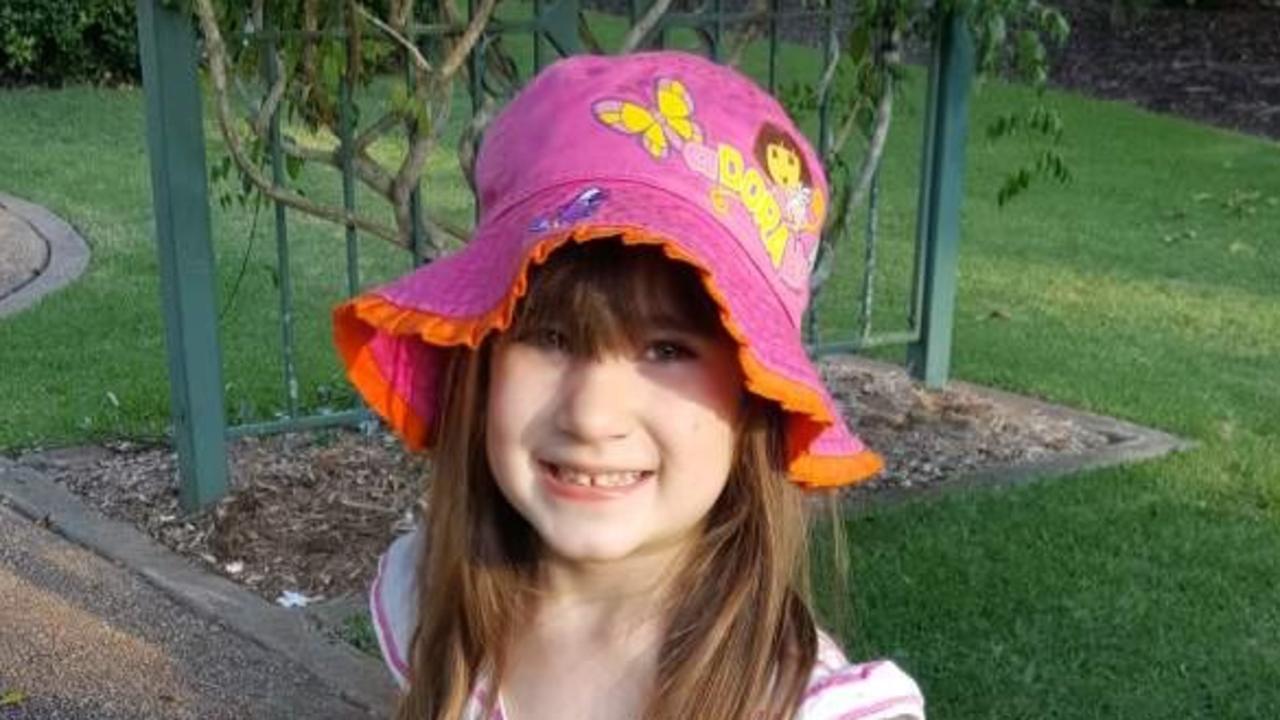Police Commissioner Katarina Carroll fronts DV inquiry
Police Commissioner Katarina Carroll has spent hours being grilled at the domestic violence inquiry into police responses, admitting to lewd comments made by senior officers but denying sexism and racism was widespread.
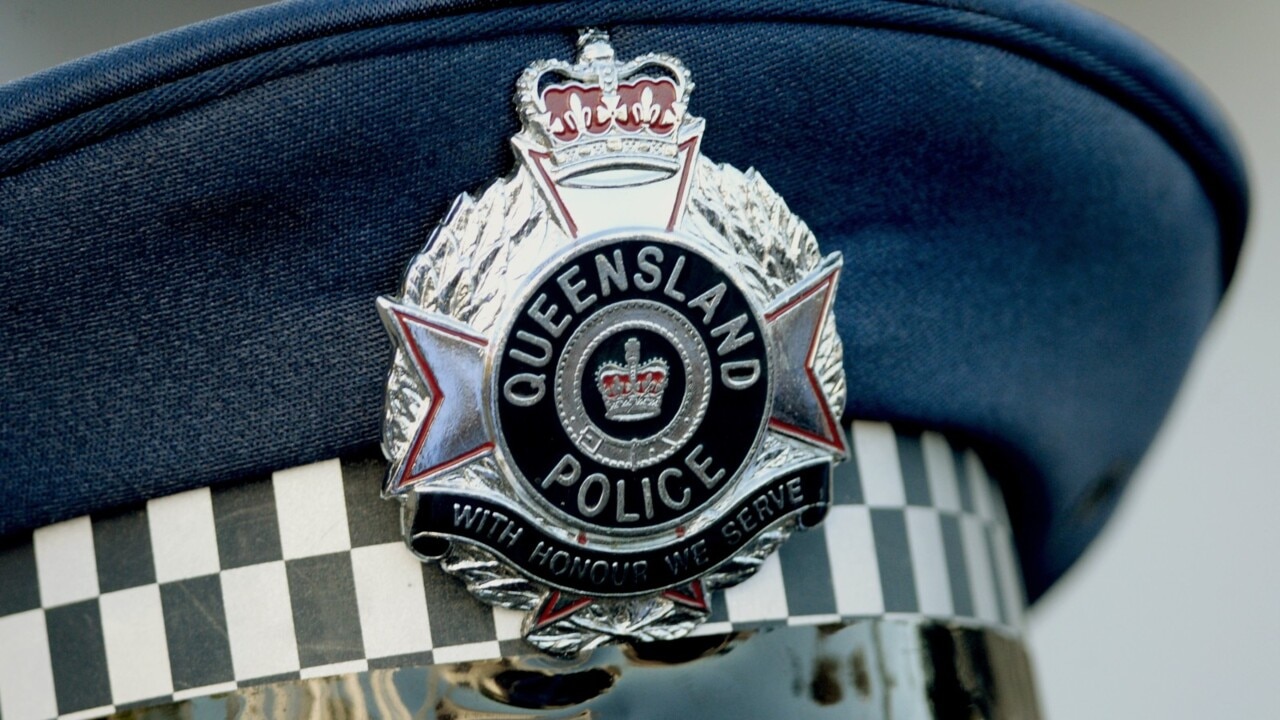
QLD News
Don't miss out on the headlines from QLD News. Followed categories will be added to My News.
Police Commissioner Katarina Carroll has today been grilled by the Commission of Inquiry into Queensland Police Service Responses to Domestic and Family Violence, admitting she first rejected a request to appear and a senior officer yelled a lewd comment at a packed police conference recently.
Ms Carroll was asked whether a summons was needed to force her to give evidence at the inquiry after she initially said no.
Counsel assisting the inquiry, Ruth O’Gorman, began her questioning seeking to “clarify” comments made by the Commissioner at a press conference at the weekend where she told media she wanted to give evidence because it was “important” to give “context” to claims made about police culture.
But Ms O’Gorman asked Ms Carroll to confirm that she was contacted by the commission of inquiry on August 4 through her lawyers and asked to give evidence.
Ms Carroll confirmed that she had declined.
Ms O’Gorman told the court that Ms Carroll was contacted again on August 11 and told her attendance was “required” and that she was asked whether she needed a “summons issued” to compel her to come.
Ms Carroll agreed that was the case, adding: “I was content to come along.”
‘DID SHE SHUT HER LEGS ON YOU?’: LEWD COMMENT AT CONFERENCE
During a discussion at the inquiry about whether a culture of misogyny, sexism and racism exists in the service, Ms Carroll was also asked whether a superintendent called out a lewd comment at a senior leaders’ conference in March.
Ms Carroll was not at the meeting.
“It’s a conference attended by the very most senior leaders of the QPS, isn’t it?” Counsel assisting the commission, Ruth O’Gorman asked.
“Yes, I instigated that conference,” Ms Carroll said.
“I think the most senior person was one deputy.”
Ms O’Gorman said it was a “very formal conference organised at the very highest level”.
“Now what we’ve been told is that the master of ceremonies at that conference had a visible injury to his face, a cut, that had required some stitches and as he was talking to the audience, he made reference to the stitches to his face and made reference to it having been a ‘rough promotional process’,” she said.
“A superintendent in the audience called out ‘did she shut her legs on you?’”
Ms Carroll said: “Yes, I’m advised that’s the case, yes.”
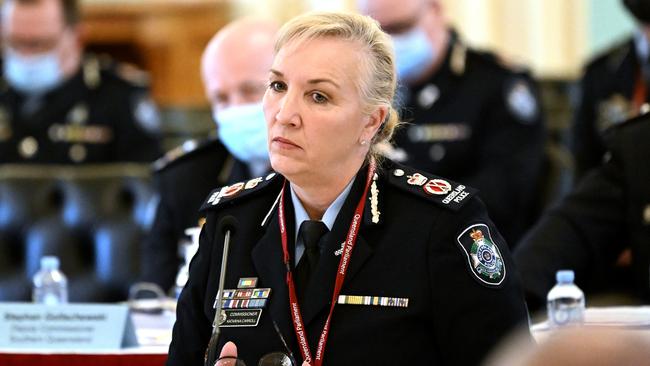
Ms Carroll went on to say, “I think there’s some contention whether the words ‘she’ were used from what I am advised from him through the leaders in the organisation”.
Ms O’Gorman said the Police Commissioner had been sent questions in writing prior to her evidence today and she had advised the comment was accurate.
“Yes, but late yesterday, I spoke to the deputy involved and I understand she was informed there was contention whether the word ‘she’ was used, but when I made the statement, yes, that’s correct,” Ms Carroll said.
Ms O’Gorman said it was unlikely the officer said ‘he’.
“Well, can I suggest to you that it’s not the case that the words ‘he shut her legs on you’ were used or something like that, it was most definitely a reference to a woman,” she said.
Commissioner of the inquiry, Judge Deborah Richards, said: “What other possible word could have been used? It couldn’t have been he, could it?”
“I totally agree,” Ms Carroll responded.
“Thank you,” Commissioner Richards said.
“I’m just relaying what was said to me,” Ms Carroll said.
It comes after multiple revelations in the inquiry from current and serving officers that their colleagues had gone to great lengths to avoid domestic violence jobs, including ignoring tasks, turning women away at the counter and even lying about the severity of a complaint to their superiors.
‘90 PER CENT OF SEX ASSAULTS ‘FABRICATED’: COP CLAIMS
Ms O’Gorman said a police officer wrote a submission to the inquiry following a call for police to share their opinions.
A detective with more than 20 years experience wrote in saying he believed “90 per cent” of sexual assault complaints made by women were “completely fabricated or the women have a misunderstanding of rape or sexual assault”.
The officer said the other 10 per cent were investigated fully.
“Common complaints are but not limited to, too drunk to remember consenting, feel sore, so something must have happened, don’t know if raped or not but thinks something happened, woke with no clothes on, seeks empathy from others, has a partner and feels guilty, can’t decide if she consented or has regrets after drinking so it must be rape,” the officer wrote.
“Other situations include retaliation for a breakup, consented but really didn’t enjoy the interaction, mental illness including delusions and dementia.”
Ms Carroll said the officer’s beliefs were inappropriate.
“I think that’s completely inappropriate and I think he misunderstands,” she said.
‘VAGINA WHISPERER’: SENIOR COP’S OUTRAGEOUS SPEECH
A deputy commissioner referred to a gynecologist as a “vagina whisperer” at a conference involving senior police in Brisbane, the inquiry has been told.
The officer made the comments at the commander’s conference during a formal speech in April this year, referring to his friend using that terminology.
“To put that in context, the effect of what he was saying was that, if his friend, who presumably was a male is a ‘vagina whisperer’, then ‘vaginas’ are women or women are ‘vaginas’?,” Ms O’Gorman asked Ms Carroll.
Ms Carroll responded: “No, he used that in the context that his friend is a gynecologist and obstetrician. And a world expert in dealing with these issues, particularly in Africa. And the conference was about leadership and the leadership of this gynecologist and obstetrician. And I don’t know how it was mentioned in the speech. But the person is a friend of the deputy and he himself and I believe the circles he operates within, call him that.”
Ms O’Gorman responded: “But that doesn’t make it okay does it?”
Ms Carroll responded: “No it doesn’t I was just giving you context.”
Inquiry Commissioner Judge Deborah Richards said: “It’s hard to imagine it was necessary in any speech to use that term.”
The officer was dealt with by “local managerial resolution” and told not to use inappropriate language in a formal setting, and was counselled by Ms Carroll.
“He was under no illusion of what I thought about it,” Ms Carroll said.
Ms O’Gorman said the risk was people hearing the term used would be affected and offended by the terms used.
Ms Richards said: “Can I just ask something about those two conferences - does that speak to you about the culture of the police that people are comfortable enough to use that sort of derogatory language in a semi-public space?” she said.
Ms Carroll responded: “I’ve been in this role for three years now. That has never occurred or reported to me ever in the previous years I’ve been in this role.”
Ms Richards said: “So it’s worsening culture?”
Ms Carroll responded: “It’s happened twice now this year. So to say that I was upset and appalled, having regard to the reform work we are doing, is probably an understatement.”
Ms Richards said: “Accepting that, does it not speak to a culture that people are comfortable to do that in a room of 100 police officers, senior officers?”
Ms Carroll said: “They were comments that were extraordinarily unacceptable ... but where it speaks to the healthy side of the culture is the first guy was called out and it was immediately reported and so was the second incident as well.”
Ms Richards said: “Alright. But you didn’t send an email for either of those incidents?”
Ms Carroll said she was in England at the time of the second incident.
MOST POLICE NOT SEXIST, MISOGYNIST OR RACIST
Asked whether she accepted some police within the Queensland Police Service were sexist, misogynist or racist, Ms Carroll said she did.
Asked whether the problem was widespread, she said she did not believe so.
“The difficulty I have is, what is widespread? Widespread is ingrained, it is entrenched. It clearly implies that most people in the organisation are like that,” Ms Carroll said.
“And I know that most people in the organisation are not like that.”
Ms Carroll said she joined the service in 1983 and had seen “many uncomfortable things” in her career.
“And there has been a lot of reform over the years to make sure we change that,” she said.
“I know there are areas of concern that need a lot of work but I can’t accept that most of us are like that.”
GRILLED ABOUT NOT RESPONDING TO INQUIRY
Ms Carroll was asked why she had not personally responded to written questions about the resourcing of the police service domestic and family violence command, when contacted by the inquiry.
Another assistant commissioner Cameron Harsley, not in the DFV command, had given the inquiry the response.
Ms Carroll said Mr Harsley had done a lot of work around resourcing and had better understanding of where the money had been spent.
Ms Carroll agreed that she could have got found the information requested, but still would have gone to another officer to get the detail.
“But you could have done that and you could‘ve answered the questions,” DFV inquiry Commissioner Deborah Richards said to Ms Carroll.
“Yes,” Ms Carroll responded.
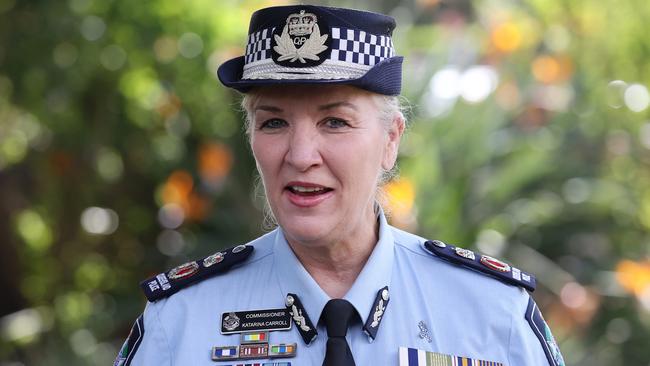
“But you chose not to,” Ms Richards said.
“That person is an expert in that area and it was...,” Ms Carroll responded.
“But we didn’t ask the questions of that person, we asked the questions of you,“ Ms Richards said.
WAS THE DV COMMAND PROPERLY STAFFED?
Ms Carroll agreed that in February 2021, she gave an interview to The Courier-Mail about the establishment of a new domestic violence-specific command headed by an Assistant Commissioner.
She agreed that she did not “seek any additional funding” to run the section but that later, the budget pressures became “quite extraordinary”.
Ms O’Gorman asked Ms Carroll whether she had overstated the capabilities of the new command.
“It wasn’t the intention to mislead anyone,” she said.
Ms O’Gorman said the new command looked “much the same as the (original) unit did” with the addition of a few senior positions.
“I can’t say whether that is the case because I don’t know of every person that was in that unit,” Ms Carroll said.
Ms O’Gorman told the inquiry there were 38 permanent positions in the police service’s media and PR team.
She said that was 11 more than were allocated to responding to the strategic capability of the police service’s response to domestic and family violence.
“Does that send an appropriate message to the community?” Ms O’Gorman asked.
Ms Carroll said that the main response to domestic violence was frontline officers and that her priority is to “put as many boots on the ground, so to speak, as possible”.
“If you just explain it like that, it is not a good look for the public,” Ms Carroll said.
The inquiry was also told other commands such as crime and intelligence had 786 positions, ethical standards 112, security and counter terrorism 418 and the Crime and Corruption Commission group 86 positions.
The inquiry was told of the 29 intelligence assessments on DV or sexual offences made recently, only five had been provided to the DFV command.
Ms O’Gorman said one in particular, an intelligence assessment that found an increase in domestic violence perpetrated by members of outlaw motorcycle gangs, had not been given to the domestic and family violence command.
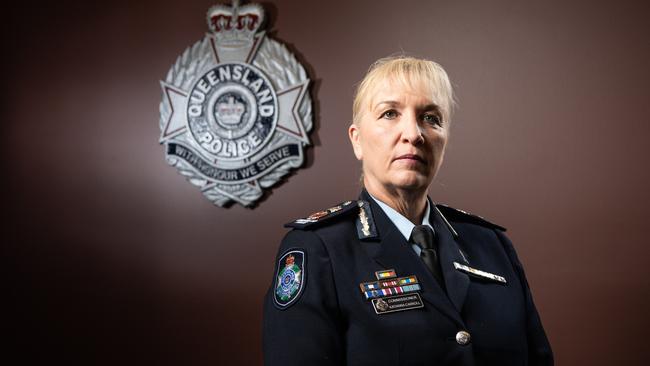
“It identifies, doesn’t it, that there has been an increase in domestic and family violence occurrences by members of outlaw gangs in Queensland,” Ms O’Gorman said.
“That intelligence assessment wasn’t undertaken by the domestic and family violence command, was it?”
Ms Carroll said it was created by the Crime and Intelligence Command and agreed it had not been passed on to the specialist domestic violence unit.
“Does that cause you concern?” Ms O’Gorman asked.
“Yes it does … this is exactly the type of document that should be going to the domestic and family violence command,” Ms Carroll said.
Ms O’Gorman referred to Ms Carroll’s evidence that the DV command would be resourced as part of an “evolutionary process”.
“Do you think it’s appropriate that women, children, men continue to suffer domestic violence … and the command doesn’t get strengthened immediately because it’s an evolutionary process that will happen eventually?” Ms O’Gorman said.
Ms Carroll disagreed it would happen “eventually” and said it had been a “very difficult process” ensuring the area was given adequate resources.“I want the command to advise me exactly what they want and they can have what they want when they request it,” she said.
OFFICERS SAY THEY DON’T HAVE ENOUGH TRAINING
Ms Carroll said she believed that was because training had been affected by the Covid-19 response.
The survey also found more than 80 per cent of survey respondents did not believe resources were appropriately balanced to deal with DV and more than half did not believe they could access specialist advice or guidance.
Nearly 30 per cent of respondents did not agree their colleagues showed empathy and understanding for those involved in DFV and less than 50 per cent believed their colleagues took the time to analyse the underlying issues of a DFV incident to take a holistic view.
When asked if QPS senior leaders sent a positive message about eliminating DV across Queensland, 40 per cent strongly disagreed, disagreed or were ambivalent.
Ms O’Gorman asked the Commissioner if she was worried by the response about senior leaders.
“That figure is concerning because we have done an incredible amount of work at the senior level to do exactly this, to actually drive this as a priority and to make sure this is communicated with our troops,” Ms Carroll said.
“I am surprised, disappointed in some ways, to see that.
WHAT THE INQUIRY ALSO HEARD
The inquiry has also heard the state’s most senior domestic violence officer, Assistant Commissioner Brian Codd, wasn’t aware of an alarming intelligence report that said victims were at risk of dying in the state’s Far North because of a lack of police action.
“Do you think it’s appropriate that women, children, men continue to suffer domestic violence … and the command doesn’t get strengthened immediately because it’s an evolutionary process that will happen eventually?” Ms O’Gorman said.
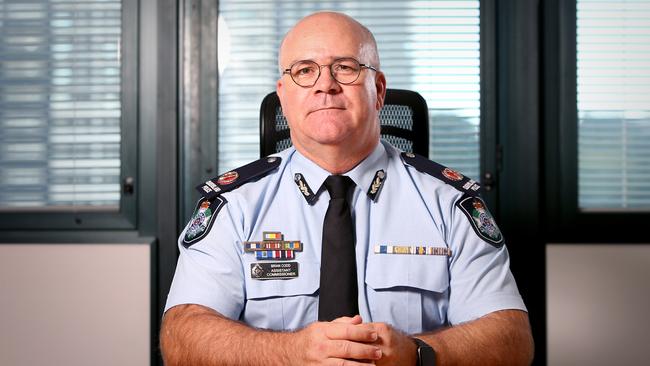
Ms Carroll disagreed it would happen “eventually” and said it had been a “very difficult process” ensuring the area was given adequate resources.
He said he had only this month seen an intelligence officer’s 2021 report which found police had not taken action against perpetrators after observing spouses with bloodied lips, swollen faces, black eyes and severe facial injuries from a glassing.
Premier Annastacia Palaszczuk called the inquiry in May in response to a recommendation by retired justice Margaret McMurdo’s Women’s Safety and Justice Taskforce.
Ms McMurdo recommended the inquiry examine the “widespread cultural issues” relating to how officers investigate complaints about domestic and family violence.
Commissioner Katarina Carroll rejected calls for an inquiry, saying it was unnecessary and expensive.
She rejected there were “widespread cultural issues” but said she accepted there were “subcultures”.
The Queensland Police Union also rejected calls for an inquiry but then later supported it.
“While I do not fear a commission of inquiry, I cannot support this recommendation,” Ms Carroll said in December when the inquiry was first recommended.
“What I am purely saying is that I believe a commission of inquiry is not warranted at the organisation because there is an independent body that can already look at it, it’s extraordinarily costly and we are already undertaking most of the recommendations that have been nominated in the report.”
The commission of inquiry has been sitting in Brisbane and around regional areas in Queensland, and more than 75 people have given evidence, including current and former officers, DV service providers and other experts in the field.
Ms Carroll and Under Treasurer Leon Allen will give evidence on Thursday.
“Commissioner Carroll will be asked to address capability, capacity and structure of the QPS to respond to DFV and cultural issues within the QPS in relation to domestic and family violence, while Under Treasurer Allen will be asked to address funding models for the QPS in relation to domestic and family violence,” a statement from the inquiry said.
A report is due by October 4.
More Coverage
Originally published as Police Commissioner Katarina Carroll fronts DV inquiry



